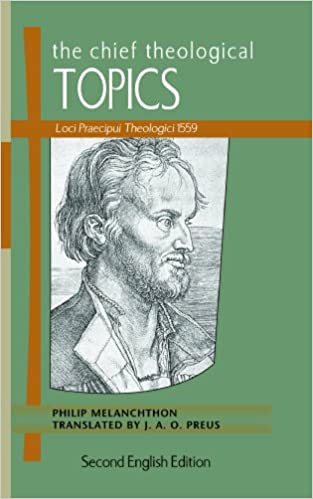- Jun 26, 2004
- 17,357
- 3,624
- Country
- Canada
- Faith
- Protestant
- Marital Status
- Married
- Politics
- CA-Others
Order of Contents
Introduction
Order of Theologians
. 1500’s
. 1600’s
. 1700’s
. 1800’s
. 1900’s
. 2000’s
Rev. Jordan Cooper, says of it:
‘This book is extensive in its treatment, but written in a simple style, without extensive academic theological terminology. This is, in my opinion, the best modern one volume treatment of systematic theology.’
Next, to hear what the older Lutheran writers had to say, open up Schmid’s Doctrinal Theology (1875). It is an anthology of extended quotes from the older orthodox Lutheran theologians laid out in systematic form. This is the classic textbook of Lutheran primary sources.
Then, to go further, buy Pieper’s 4 volume Christian Dogmatics (1924). This massive and nearly exhaustive defense of orthodox Lutheranism will give you the most detailed Biblical and systematic arguments for the Lutheran positions and interpretations. It is akin to the systematic theologies of Herman Bavink and Francis Turretin on the reformed side. It is the most accessible definitive work of Lutheranism that has been translated into English.
Relatively few of the older Lutherans have been translated into English (most of them wrote in German and Latin). The ones that are available in English online (besides the lengthy and numerous excerpts translated in Schmid’s work) are Hutter and Baier. Melanchthon, Chemnitz, Gerhard, Quenstedt and some of the others can be purchased in print in English. Open them up and see what they have to say.
While, you are reading all of this, be sure to carefully peruse Richard Muller’s Dictionary of Latin and Greek Theological Terms Buy (1985). Muller, one of the world’s leading reformed historians, gives and precisely defines the primary theological terms and categories used during the 1500’s and 1600’s by Lutheran and Reformed theologians. These very careful and impartial definitions are useful not only to clearly understanding the theological issues, but also in order to precisely understand where the point of difference lies between Lutheran theology and Reformed theology.
To understand why Reformed theology, after much thought, reflection and Biblical exegesis, still disagrees with their Lutheran brethren after fully hearing their case, see some of our recommended reformed Systematic Theologies.
Most of the authorities below were collected from the appended annotated bibliography of Schmid’s work and the recommendations of the Lutheran, Rev. Jordan Cooper. See both of those articles for more background info on the authors and evaluations of their works.
Please enjoy.
Introduction
Order of Theologians
. 1500’s
. 1600’s
. 1700’s
. 1800’s
. 1900’s
. 2000’s
Rev. Jordan Cooper, says of it:
‘This book is extensive in its treatment, but written in a simple style, without extensive academic theological terminology. This is, in my opinion, the best modern one volume treatment of systematic theology.’
Next, to hear what the older Lutheran writers had to say, open up Schmid’s Doctrinal Theology (1875). It is an anthology of extended quotes from the older orthodox Lutheran theologians laid out in systematic form. This is the classic textbook of Lutheran primary sources.
Then, to go further, buy Pieper’s 4 volume Christian Dogmatics (1924). This massive and nearly exhaustive defense of orthodox Lutheranism will give you the most detailed Biblical and systematic arguments for the Lutheran positions and interpretations. It is akin to the systematic theologies of Herman Bavink and Francis Turretin on the reformed side. It is the most accessible definitive work of Lutheranism that has been translated into English.
Relatively few of the older Lutherans have been translated into English (most of them wrote in German and Latin). The ones that are available in English online (besides the lengthy and numerous excerpts translated in Schmid’s work) are Hutter and Baier. Melanchthon, Chemnitz, Gerhard, Quenstedt and some of the others can be purchased in print in English. Open them up and see what they have to say.
While, you are reading all of this, be sure to carefully peruse Richard Muller’s Dictionary of Latin and Greek Theological Terms Buy (1985). Muller, one of the world’s leading reformed historians, gives and precisely defines the primary theological terms and categories used during the 1500’s and 1600’s by Lutheran and Reformed theologians. These very careful and impartial definitions are useful not only to clearly understanding the theological issues, but also in order to precisely understand where the point of difference lies between Lutheran theology and Reformed theology.
To understand why Reformed theology, after much thought, reflection and Biblical exegesis, still disagrees with their Lutheran brethren after fully hearing their case, see some of our recommended reformed Systematic Theologies.
Most of the authorities below were collected from the appended annotated bibliography of Schmid’s work and the recommendations of the Lutheran, Rev. Jordan Cooper. See both of those articles for more background info on the authors and evaluations of their works.
Please enjoy.

